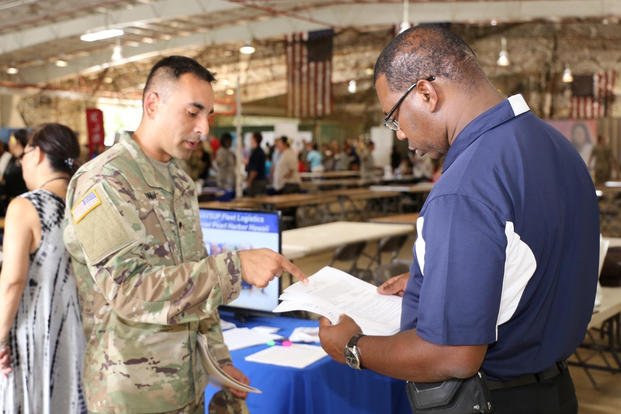The word "networking" gets a bad rap. It conjures images of people mingling at an after-work social hour mindlessly asking the same questions, like, "What do you do?" then responding with, "Wow, that's interesting."
But it doesn't have to be that way.
Networking isn't about your ego, and it isn't about free drinks (though that's a bonus). And it's not about trying out your elevator pitch to everyone in the room. Instead, it's about establishing genuine connections with like-minded people and discovering how interconnected we all are and learning how to listen and ask good questions. The side effects of those new relationships can be great for your future career, but that shouldn't be your only goal.
Military culture does not teach you how to network, and while on active duty, it can be seen as pandering. Instead, veterans are trained to conceal, not reveal. The military does a good job at training veterans to be leaders and to accomplish missions with little to no resources but grit and teamwork. But networking? Not so much.
Related: Search for Veteran Jobs
Here are three tips on how to make the most of any networking opportunity, whether online or face to face.
1. Approach Networking Like a Recon Mission
To network well, never approach someone with your hand out asking for a job or, worse yet, immediately pitch your business idea. Instead, pause, do your homework beforehand and be ready to build relationships.
If you're attending an event, be sure to research the type of people who will be there. If the attendees are listed publicly, look them up on LinkedIn. That isn't considered "stalking"; it's just research. If attendees are not listed, develop a list of questions you'd like to ask someone who is already in the line of work you'd like to enter.
Or if you're already in a line of work, bring with you a list of questions that address some of your greatest challenges. That preparation will help you focus on finding others who faced similar dilemmas and can help you find solutions.
Are you having problems scaling your small business? Are you experiencing difficulty finding qualified workers or have high employee turnover? You can find others who conquered these problems and more.
2. Inquiring Minds
Be curious. Approach all networking with an inquisitive mind. That may seem like obvious advice, but the people who cultivate the best, most useful networks are those who are genuinely curious as to what other people do and how they do it.
But that requires trust. If you do your homework and know what the other person has accomplished, and you show them you appreciate what they have created, they will be more likely to respond to you. And if they do, that is the time you can ask for an informational interview ... sort of.
3. Don't Actually Ask for an 'Informational Interview'
First, no one literally asks for an informational interview. The term "informational interview" refers to a conversation where you can ask a professional some questions about what they do and get more information about the company for which they work.
You get to that stage of a professional relationship by first establishing trust. And trust is created by showing you're a credible professional worth their time.
How do you show you're a credible professional? First, do your homework and research on the person you've identified. When you do that research, you establish what the Center for Sales Strategy calls a Valid Business Reason (VBR), which is simply a good reason why you're reaching out to them. (Hint: It's not so that you can ask for a job or an inside reference.)
Sales? Yes. You are selling yourself; we all are. But before you fire off questions, you have to first establish that you appreciate something about the person you are approaching, even if it is a simple LinkedIn or Twitter post they wrote on a relevant article or opinion. Everything is an opportunity for you to find a genuine connection, and then use that as a VBR to reach out to them.
Find the Right Veteran Job
Whether you want to polish your resume, find veteran job fairs in your area or connect with employers looking to hire veterans, Military.com can help. Sign up for a free Military.com membership to have job postings, guides and advice, and more delivered directly to your inbox.












